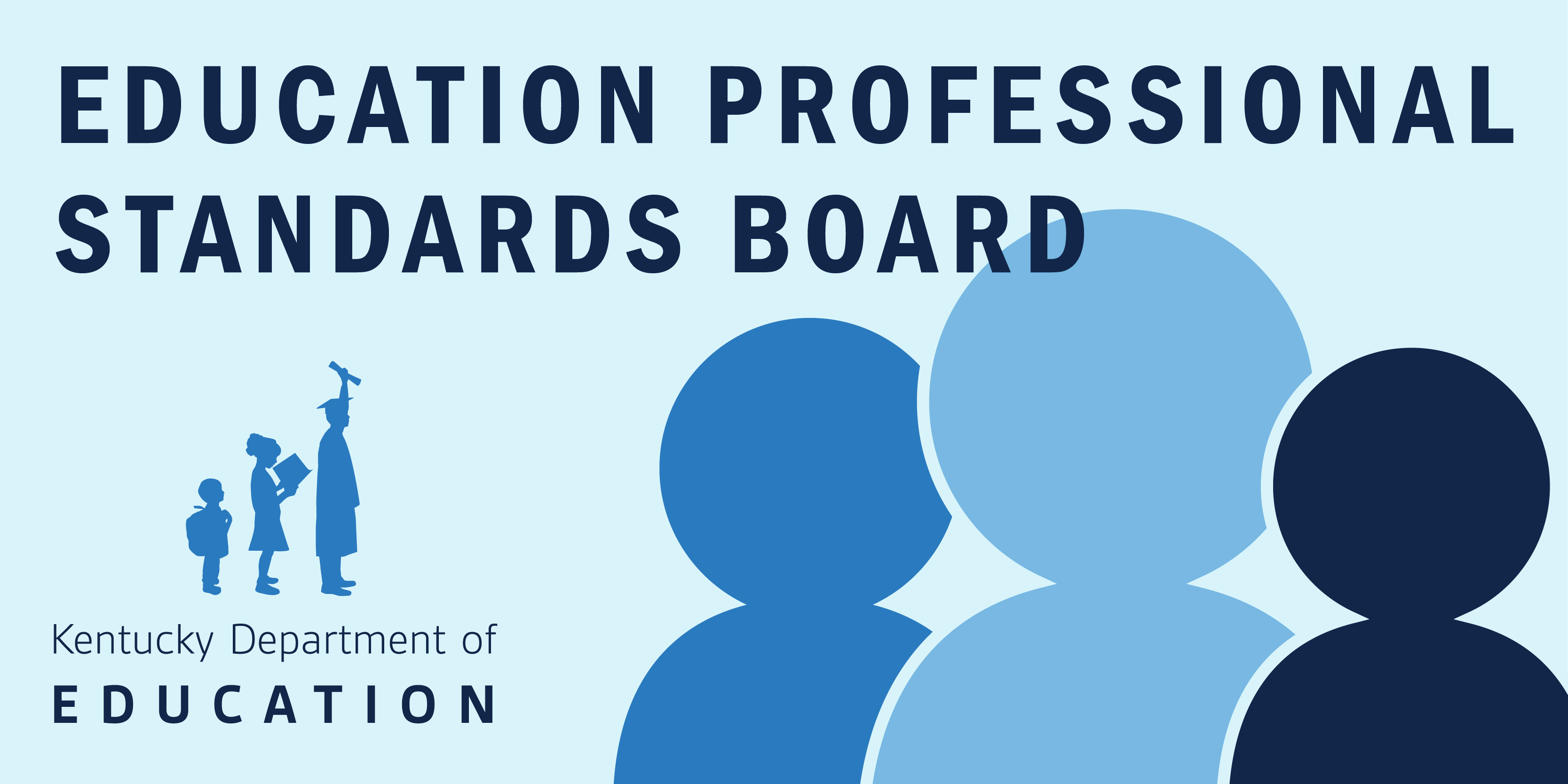
Kentucky Education Commissioner Wayne Lewis addresses myths about the state’s new 5-star accountability system at the Oct. 3 meeting of the Kentucky Board of Education.
Photo by Jacob Perkins, Oct. 3, 2019
(LONDON, KY) – Kentucky Education Commissioner Wayne Lewis kicked off the Oct. 3 meeting of the Kentucky Board of Education by addressing myths about the state’s new 5-star accountability system that launched on Oct. 1. The video of the commissioner’s report is now online.
“There has been unfortunately a very deliberate attempt by folks to undermine the accountability system,” said Lewis. “Efforts to undermine the integrity of this system have one single purpose. If you’re talking about these lies, you are not talking about the 40% of black students demonstrating little to no understanding of the academic content at grade level. Until we can begin to accept that we have to improve, improve teaching and learning in classrooms, poor and black children in Kentucky do not have a prayer for improvement. It can be done and it is happening in schools across Kentucky.”
Lewis said that one of the myths he’s hearing is that the ratings are only based on a single test on a single day. In fact, the star ratings are based on the following indicators:
- Reading and mathematics performance
- Performance in social studies, science and writing
- Students’ academic growth/progress over one academic year
- Transition readiness (college and career readiness)
- Graduation rate
Each school’s performance in each indicator can be found online at kyschoolreportcard.com.
Lewis also addressed a myth suggesting that he designed the system simply to punish Jefferson County Public Schools, the state’s largest district that has been under a management agreement with the state since 2018. The district had 35 of the 50 schools that scored within the bottom 5% of all schools in the state.
“The department convened a group of stakeholders – superintendents, teachers, principals and business leaders – to determine the cut scores for the overall system,” said Lewis. “I accepted the recommendation from the stakeholder group without changing a single thing. There is no ‘choosing’ what schools are CSI. It is mathematically determined.”
Lewis also addressed what he says is the most insidious lie about the system – that it unfairly punishes low-income and African American students because schools with a higher population of those student groups will never perform as well as schools with a high percentage of white, middle class students.
“If you are an educator who serves poor children or black children and you believe poor children or black children cannot learn, you should leave your job today. To believe that poor students and black students cannot learn at high levels is racist and degrading,” he said. “If you want evidence that all children can learn, regardless of their background, there are multiple examples across the state.
“Perry and Fleming counties are great examples of districts that serve lots of kids with challenges, where continuous improvement has become part of the fabric of the district. Yates Elementary, an urban school in Fayette County, is another example. They all have very high levels of growth and that’s the genius of our system. Even if kids aren’t where they need to be yet, if they’re growing, schools are awarded for their growth in this system. That’s something I’m proud, really proud of, in this system.”
Lewis provided an overview of the percentage of students performing in the Novice category in math and reading on K-PREP tests, saying that it is unacceptable that the rate of African American students scoring Novice is double that of their white peers.
“We have to declare war on the Novice level. These kids are in academic emergency – they need critical academic intervention. Slightly less than half of African American kids in our schools have little to no understanding of reading and math content at grade level. We must do better.”
A deeper dive into student assessments and performance levels was provided by KDE Associate Commissioner Rhonda Sims and her team members, Jennifer Stafford and Kevin Hill.
The presentation started with an overview of the performance level descriptors for the K-PREP assessment, known as Novice, Apprentice, Proficient and Distinguished. The descriptors are defined as:
- NOVICE: A novice student has a minimal understanding of the Kentucky Academic Standards at grade level. The student communicates ideas ineffectively or inaccurately, providing little detail and little or no support. Attempts at problem-solving or critical thinking are minimal or inappropriate.
- APPRENTICE: An apprentice student has a basic understanding of the Kentucky Academic Standards at grade level. The student demonstrates some problem-solving and critical thinking skills, but they are not consistently applied. The student communicates ideas in a basic manner, but explanations, solutions or justifications may be unclear or ineffective.
- PROFICIENT: A proficient student has a broad understanding of the Kentucky Academic Standards at grade level. The student usually communicates ideas accurately using clear and appropriate examples, supporting or justifying those ideas with relevant details and evidence. Problem-solving and critical thinking skills are used effectively.
- DISTINGUISHED: A distinguished student has a comprehensive understanding of the Kentucky Academic Standards at grade level. The student consistently communicates ideas in a sophisticated and complex manner, using thorough supporting detail and explicit examples. The student reasons and solves problems by using appropriate strategies in an insightful way.
Board members were provided with a sample of what parents see when they receive their children’s test scores and an analysis of the progress and regression shown by Kentucky students during the 2018-2019 school year.
Although a discussion ensued on whether parents are given enough information about their child’s academic progress based on the names and descriptions of the performance levels, the conversation concluded following a comment from board member Laura Timberlake, who said changing the names likely would cause more confusion among educators and parents.



When students are given an assignment to read a chapter and then answer the review questions at the end, they tend to go straight to the review questions and then skim for answers. This process done over and over destroys reading comprehension. This process is much more common in the sub groups you list as struggling.
Also, groups in a math class are not always good. If I give 10 problems to a group of 5, each student may do 2 and then share answers. Students need to do every problem. Practice makes perfect.
Also, the quickest way to improve test scores is to absolutely stop all copying of other students work and adamantly avoid cheating on tests. Too many students have high GPAs but test poorly because they are PROFICIENT or DISTINGUISHED at copying and cheating.
And finally, never ever suggest to a student that they have low scores because, “Some students just don’t test well,” or “You may have test anxiety.” This becomes an excuse that will follow them into the workforce. As a business owner, if I am told that an applicant does not test well or has text anxiety, that tells me that he or she will not do well under stress. Many of today’s better paying jobs require an ability to handle stressful situations.
TEST ANXIETY is what you see when a student that is PROFICIENT or DISTINGUISHED at copying and cheating, sits down to do an ACT test and realizes that he or she can’t have a smart phone, smart watch, or any other electronic communication device to assist.
Can we please put some accountability on parents and community efforts here? “We must do better” should be more than teachers/schools should do better. The saying, it takes a village has changed to, here’s the kids, teachers: fix them. We need support for these students at home and in their communities to ensure they’re basic needs are met. It’s hard to focus on schoolwork when you’re hungry, sick, traumatized, worried, etc…
You keep rating the school and the teacher, we have a third party in the mix called the student. What is you solution for the student that refuses to do any work at all, and is a disruption in the classroom on a daily basis?
Why does the public not see the performance results for all content areas. The report states that other academic areas are included; but not included in the report. Why? As a taxpayer, I would like to see all data. With all the data in hand, a person may be able to make a more informed decision about their school choices.
You actually can see all of the data, but you need to navigate to a deeper page. From the landing page of your selected school, look under the Academic Performance category right under Overview. To the right, you will see a box that says Assessment and Performance; click on that header. You will be taken to a page that gives you more detailed information about all of the test data at that particular school.